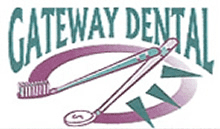Dentures/Partials/Bridges
Protect Your Smile
At Gateway Dental, we provide dentures, partials, and bridges for patients throughout Colleyville, TX. Our comprehensive range of services ensures you achieve a complete and confident smile. Whether you need to replace missing teeth or restore damaged ones, our skilled team is dedicated to delivering gentle care and dental excellence. With our state-of-the-art technology and spa-like comforts, we offer a dental experience like no other. Trust Gateway Dental to enhance your smile, improve oral health, and provide VIP treatment in a dental spa atmosphere.

What Are Partials?
Partials, often referred to as partial dentures, are a type of removable prosthetic device designed to replace one or more missing teeth in the same arch. They can be used when the patient still has some of their natural teeth. Partials are usually made from a combination of acrylic and metal, which provides a stable base and mimics the appearance of gums and teeth. They attach to the existing teeth with clasps, offering a secure fit while still being easy to remove for cleaning. Here are some key benefits of partials:
- Versatility – Partials can replace multiple missing teeth in different areas of the mouth.
- Prevents Tooth Shifting – By filling the gaps, they help to prevent remaining teeth from shifting.
- Improved Aesthetics – Partials can significantly enhance the look of your smile.
- Better Functionality – They restore the ability to chew and speak effectively.
- Cost-Effective – Partials are less expensive than tooth replacement options like bridges or implants.
What Are Dentures?
Dentures are removable prosthetic devices created to replace missing teeth and surrounding tissues. They come in two types: complete and partial. Complete dentures are used when all teeth are missing, while partial dentures fill the gaps when some natural teeth remain. Made from various materials, including acrylic resin or metal, they closely resemble natural teeth and gums, thus improving the wearer’s smile, speech, and ability to chew. They are custom-made using impressions taken from the patient’s mouth, ensuring a comfortable and secure fit.
What Are Bridges?
Dental bridges, as their name implies, literally bridge the gap created by one or more missing teeth. They are dental restorations designed to be aesthetic and functional, replacing the missing tooth with a prosthetic one, a pontic. Bridges are firmly anchored on either side by dental crowns, known as abutments, cemented onto the natural teeth or implants to adjust to the space. This ensures stability and allows the artificial tooth to perform its function effectively. Dental bridges come in several types, each suited to different needs and circumstances. Our team will work with you to find the right type of bridge that fits your unique needs.
Be Confident in Your Smile
Dentures, partials, and bridges are vital in preserving oral health, improving quality of life, and restoring self-confidence. Each offers unique benefits and is suited to different dental needs. Hence, the importance of professional consultation cannot be overstated. At Gateway Dental, we’re committed to helping you make an informed decision best suited for your lifestyle and oral health. Remember, regular dental check-ups are key to maintaining a healthy, vibrant smile. Reach out to schedule your consultation today.
